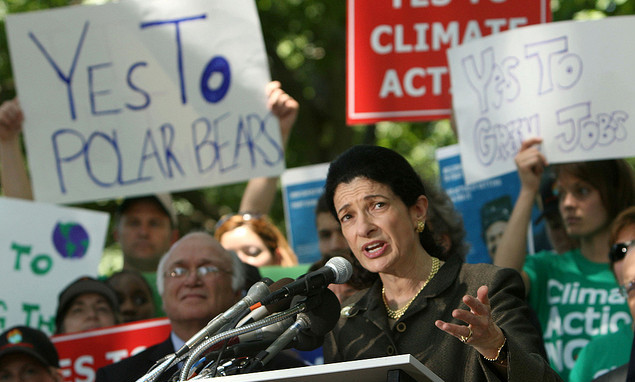On Monday, former Senator Olympia Snowe visited Brown to deliver a lecture titled “Bridging the Divide: What Hyper Partisanship means for 2014… And How We Can Fix Washington.” Invited by the Taubman Center for Public Policy, Snowe was greeted by a packed auditorium and gave an in depth speech on partisanship in Washington: its intensification in the past decade, its negative impact on the nation’s economic recovery, and the unlikelihood that it will diminish in the near future.
Snowe’s political identity is intertwined with congressional partisanship and its rise to alarming levels in recent years. A moderate Republican, Snowe sponsored numerous bipartisan bills in her 34 years representing Maine in Congress, 18 spent in the senate. When she chose not to run for a fourth senatorial term in January 2013 she was one of the last moderate Republicans or Democrats left in either houses of Congress — Snowe supports legalized abortion, and while she served as a senator, she supported limited gay rights. Since leaving office, she has come out in full support of gay marriage.
I mentioned Snowe several months ago in an article discussing the “dwindling number of centrists in politics.” Liberal Republicans and Conservative Democrats are a dying breed. While most moderate politicians are driven out of policy making by more extreme challengers in the primaries, Snowe chose not to continue her congressional career. She explained that “my way or the highway” partisan strategies rampant in current Congressional politics were a principle factor in her decision not to pursue reelection.
And while she’s dropped out of congressional politics, Snowe hasn’t given up on improving the legislative gridlock deriving from the two parties’ vastly different ideologies. She penned a book “Fighting for Common Ground: How We can Fix the Stalemate in Congress,” and she is currently a senior fellow at the Bipartisan Policy Center where she co-chairs its Commission on Public Reform. During her lecture, Snowe outlined reforms that — if implemented — could combat Congress’s truculent atmosphere and the trend of red states growing redder and blue states bluer. Snowe described how the current system of state districting ferments safe seats for Republican and Democrat representatives alike, creating little incentive for party politicians to appeal to moderate or independent voters. She cited independent redistricting commissions, a standard already implemented in California, New Jersey, and Washington among other states, as a method to increase competitiveness in congressional elections. Snowe also endorsed open primaries, which would provide an opportunity to dilute the more extreme voting demographic that turns out for the primary elections of both parties. Lastly, Snowe belabored the point that voters must demand accountability from their representatives. She stated, “silence is not golden,” and encouraged the use of social media to push forward the conversation of compromise.
